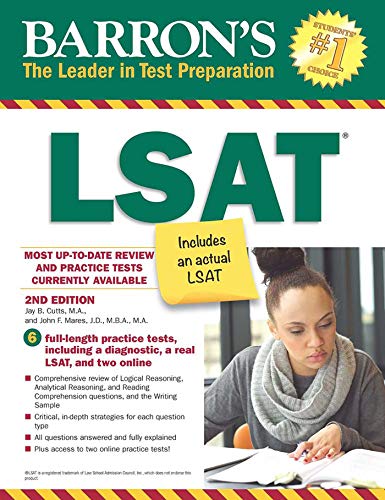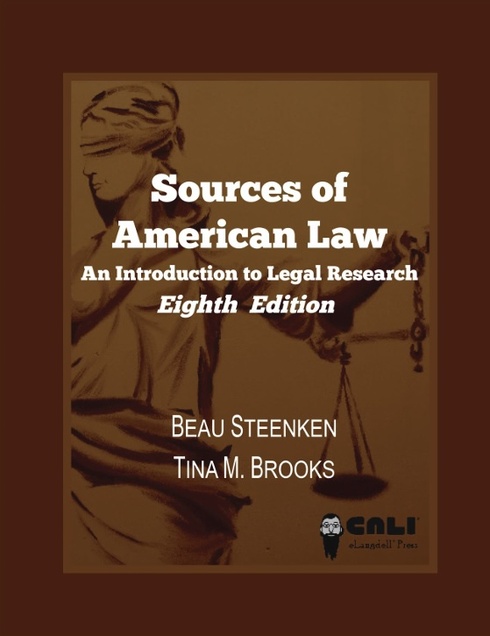

Interlibrary Loan services allow current Fredonia faculty, staff, and students to request books, articles, book chapters, and other materials that are not owned by Reed Library.
For more information, visit our guide on ILL.
ReedSearch is often the best place to start your search for books. Below you will find a small selection of items that exist in our physical and digital collections, as well as links to open access collections.
 Barron's LSAT
This must-have review book thoroughly prepares law school candidates for the all-important Law School Admission Test.This must-have review book thoroughly prepares law school candidates for the all-important Law School Admission Test.
Barron's LSAT
This must-have review book thoroughly prepares law school candidates for the all-important Law School Admission Test.This must-have review book thoroughly prepares law school candidates for the all-important Law School Admission Test.
 Sources of American Law: An Introduction to Legal Research
At its most basic definition the practice of law comprises conducting research to find relevant rules of law and then applying those rules to the specific set of circumstances faced by a client. However, in American law, the legal rules to be applied derive from myriad sources, complicating the process and making legal research different from other sorts of research. This text introduces first-year law students to the new kind of research required to study and to practice law.
Sources of American Law: An Introduction to Legal Research
At its most basic definition the practice of law comprises conducting research to find relevant rules of law and then applying those rules to the specific set of circumstances faced by a client. However, in American law, the legal rules to be applied derive from myriad sources, complicating the process and making legal research different from other sorts of research. This text introduces first-year law students to the new kind of research required to study and to practice law.
Daniel A. Reed Library • The State University of New York at Fredonia • 280 Central Ave., Fredonia, NY 14063 • 716-673-3184 • reedref@fredonia.edu
FB: @ReedLibraryInsta: @SUNYFredLibrary X: @SUNYFredLibrary
Accessibility Statement: Reed Library is dedicated to making information accessible for everyone. If you notice an accessibility issue within this guide, please contact Katelynn Telford
 Except where otherwise noted, this guide is licensed under a Creative Commons Attribution-ShareAlike 4.0 International License.
Except where otherwise noted, this guide is licensed under a Creative Commons Attribution-ShareAlike 4.0 International License.